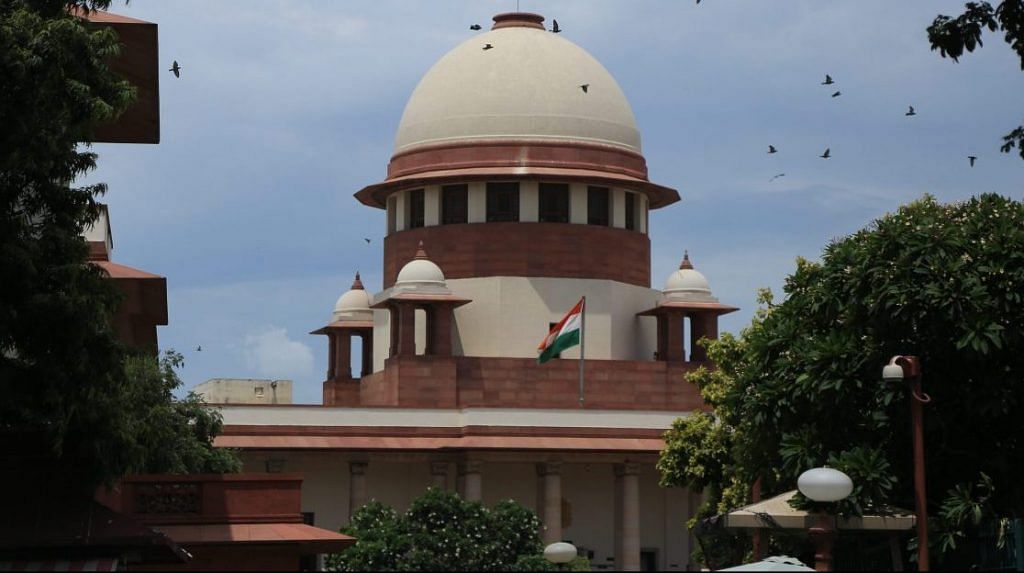The recent amendments to the Citizenship Act 1955, have been the source of much political tension. With the Citizenship (Amendment) Bill or CAB having become law, the matter now involves not only India’s political branches but also the judiciary. The amendments dramatically alter India’s founding and long-standing approach to citizenship. As Niraja Gopal Jayal has argued, the changes (to be seen alongside the National Register of Citizens), mark a shift from “soil to blood as the basis of citizenship” as well as a shift from a framework that is neutral toward religion to one that explicitly adopts a religious-based test. Are such changes constitutional?
A recent petition filed in the Supreme Court carefully outlines a range of constitutional concerns with the changes to the Citizenship Act. The core concerns stem from Section 2 of the Citizenship (Amendment) Act, 2019, under which “any person belonging to Hindu, Sikh, Buddhist, Jain, Parsi or Christian community from Afghanistan, Bangladesh or Pakistan … shall not be treated as illegal migrant for the purposes”. There are several constitutional concerns with the changes; two in particular merit underlining.
Also read: Citizenship protests in northeast show Muslims are really on their own in this fight
Both over and under-inclusive
The first set of concerns relate to Article 14 of India’s Constitution that guarantees equality before the law – a guarantee that applies to persons and not only to citizens (and therefore applies in this case). There are two kinds of distinctions that are made in the impugned changes. First, there is a distinction based on the religion of the person involved. Certain religions are included, which means that both certain religions (most clearly, Islam) as well as irreligious individuals are excluded. Second, there is a distinction based on the countries to which the individuals belong – three countries are included (Afghanistan, Pakistan and Bangladesh) but other countries (in the region and elsewhere) are excluded.
Are these distinctions valid? All equality guarantees permit certain kinds of distinctions. The question is not whether a law makes a distinction, but whether it is permissible. The traditional approach to assessing Article 14 violations in Indian constitutionalism has been to ask whether the law makes a classification based on an intelligible differentia, and then to further inquire into whether there is a rational nexus between the classification and the objective of the law.
The amendments to the Citizenship Act seem to fail each stage of the test. The classification made is both under-inclusive and over-inclusive with regard to the religions and the regions included in the provision. It is under-inclusive because, if the concern is religious persecution, then the provision cannot explain, as the Supreme Court petition notes, why, for example, Ahmadiyyas from Pakistan are excluded. And it is over-inclusive because it assumes that all persons who belong to the specified religions and regions, and who enter India, are religiously persecuted. By doing so, it ironically treats those who have actually been religiously persecuted differently, by lumping them in the same category as those that have not.
Also read: CAB protests a battle for India – either we are a secular state or we aren’t India at all
Religious persecution?
These concerns slide into the second stage of the test. The amendments say nothing of religious persecution – this is mentioned as the objective of the changes, but there is no provision that addresses the fact of religious persecution. This means that there is no rational nexus between the classification and the objectives of the law, because the law grants citizenship regardless of whether or not religious persecution has occurred.
The second set of concerns relate to the objective of the law. This is partially a concern under Article 14 itself – which demands attention as to whether the objective of the law is legitimate. But it is also a concern more broadly, because it implicates a whole set of constitutional provisions, such as those pertaining to citizenship. In a series of judgments, including Kesavananda Bharti and S. R. Bommai, the Supreme Court has held secularism to be a part of the basic structure of the Constitution. This means that the secular foundations of the Constitution cannot be altered even by a constitutional amendment, let alone by an ordinary statutory enactment.
The changes challenge the constitutional principle of secularism because they use religion as a basis for the classification of persons. It is the fact of one’s religion rather than the fact of religious persecution (which might take place regardless of the fact of one’s religion) that has a role in the classificatory scheme that is drawn up. This is evident by a bare reading of the provisions, making them ex facie unconstitutional. The changes, as the petition mentioned above states, “treats refugees who belong to one religion as less worthy of equal concern and respect than refugees who belong to a different religion”.
For some years, the Indian Supreme Court has declared rights in grand terms and defended them with little enthusiasm in specific instances. This is true across our jurisprudence from the right to life to the right to freedom of speech and expression. The changes to the Citizenship Act are a chance to set the record straight.
The author is a lawyer and political theorist and has written India’s Founding Moment (Harvard University Press, 2020). Views are personal.
